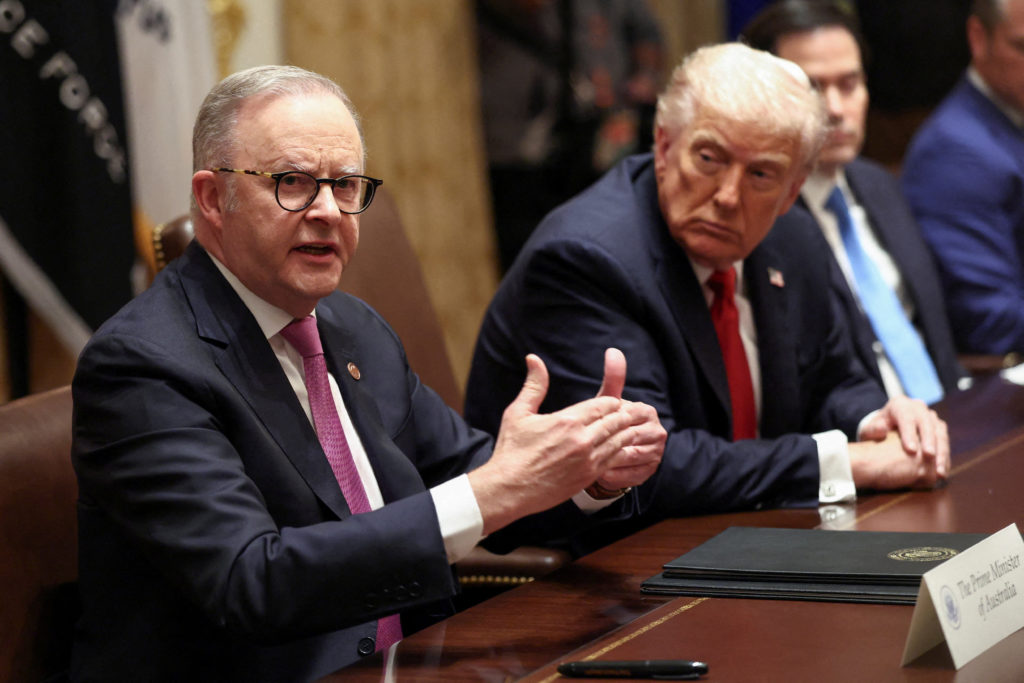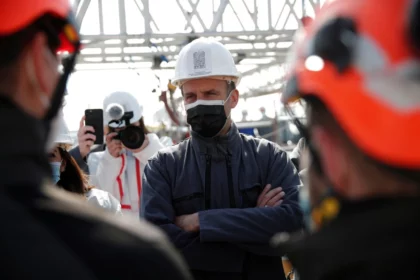US President Donald Trump and Australian Prime Minister Anthony Albanese sealed a strategic agreement on critical minerals during a White House meeting on Monday, aimed at reducing reliance on China while strengthening Indo-Pacific security.
The landmark deal comes amid growing global concerns over China’s control of rare earths and other strategic minerals, vital for industries ranging from electric vehicles to military technology. Under the agreement, both countries will invest $1 billion each over six months into mining and processing projects, while also setting a minimum price floor for critical minerals, a measure long sought by Western miners.

According to the White House, the combined investments target mineral deposits valued at $53 billion, although specific types and locations were not disclosed. As part of the deal, the US Export-Import Bank will issue seven letters of interest to fund $2.2 billion in mineral projects between the two nations, and the Pentagon plans to build a gallium refinery in Western Australia after China restricted exports last December.
Trump expressed optimism about the deal, stating:
“In about a year from now, we’ll have so much critical mineral and rare earths that you won’t know what to do with them.”
The agreement also involves cooperation on mine permitting, processing facilities, geological mapping, mineral recycling, and safeguards to prevent critical minerals from being sold to foreign entities — an apparent nod to China’s global mining acquisitions over the past decade.
AUKUS Submarine Pact Gets Trump’s Support
During the meeting, Trump reaffirmed US backing for the A$368 billion ($239.46 billion) AUKUS agreement, signed in 2023 under President Biden. The deal involves Australia purchasing nuclear-powered submarines in 2032 and collaborating with the US and UK on a new submarine class.
Despite his broader efforts to roll back Biden-era policies, Trump signaled that the submarine pact would proceed as planned, describing previous ambiguities in the agreement as “minor details” and affirming:
“We’re just going now full steam ahead, building.”
Australian officials highlighted their contributions under AUKUS, including $2 billion this year to accelerate US submarine production and preparations to maintain Virginia-class submarines at an Indian Ocean base from 2027.
Context of the Critical Minerals Deal
The rare earths agreement arrives shortly after US officials criticized China’s expansion of rare earth export controls, warning of risks to global supply chains. Australia, rich in rare earth reserves, offered preferential access as part of trade negotiations with the US in April.
The deal’s broader objectives include:
- Reducing dependence on Chinese mineral supply chains
- Accelerating US-Australia production of critical minerals
- Enhancing national security protections for strategic resources
With China holding the world’s largest rare earth reserves, the US-Australia partnership aims to secure stable supplies for critical technologies and military applications, reinforcing both countries’ positions in the Indo-Pacific.




